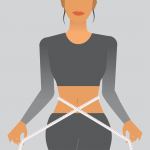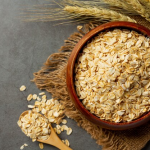Dizziness is a feeling of lightheadedness or unsteadiness that can be caused by problems in the inner ear, infection, blood pressure, vertigo, blood sugar, blood vessel blockage or heart disease, medication side effects and anxiety. Dizziness can be a temporary condition or it can progress in a serious course. Depending on the severity and frequency of dizziness, you may need to see a doctor.
What is dizziness?
Dizziness is the feeling of being dizzy, dizzy, with a change in the sense of direction and place, and the perception that those around us are perceived as spinning, and the loss of balance stability as if they will fall.
What Causes Dizziness?
Dizziness can be caused by inner ear problems such as vertigo, neck flattening, low blood sugar, blood pressure, prolonged dehydration, concussion and head trauma, anemia, migraine, infection, stress, fatigue, alcohol and excessive exercise.
Common causes of dizziness include:
Inner ear problems such as vertigo and Meniere’s
Labyrinthitis, an inflammation of the inner ear system, can cause dizziness due to the deterioration of the inner ear system responsible for hearing and balance. This is also the cause of vertigo, which causes severe dizziness. Another ear-related disease that causes dizziness is Meniere’s disease, which is caused by fluid accumulation in the ear canals.
Migraine
Migraine is primarily characterized by the symptom of headache and is a recurrent pain. Research has shown that some people experience dizziness before experiencing a migraine attack.
Low blood sugar levels
Especially people with diabetes should have their blood sugar levels checked frequently. Because low blood sugar brings various problems. One of these is dizziness. Low blood sugar with dizziness can cause problems such as hunger, trembling and sweating.
Low blood pressure and blood pressure medications
Low blood pressure and blood pressure medications can often cause dizziness.
Exposure to heat
Prolonged exposure to heat, especially when standing in the sun for long periods of time, can cause a drop in blood pressure due to dehydration, which can lead to dizziness as a neurological symptom.
Dehydration
Most people lose fluid every day when they sweat, breathe and go to the toilet. After dehydration, blood pressure can drop and the brain does not get enough oxygen. As a result, some symptoms occur. Dizziness is also considered one of the symptoms that occur after dehydration. People who experience these symptoms may be exposed to these problems if they do not consume enough water to regain the lost fluid.
Anemia
Dizziness is an important symptom of anemia – not having enough red blood cells.
Concussion
Dizziness can be seen in head traumas that may occur as a result of a blow to the head or a collision for any reason.
Motion sickness (motion sickness)
Dizziness and nausea when traveling by car, boat or other vehicles is known as motion sickness. People may experience symptoms of dizziness while traveling. You can use candied ginger and aromatherapy to reduce motion sickness symptoms.
Cardiovascular diseases
Heart diseases may also be among the causes of dizziness. Irregular heartbeat, low blood pressure and narrowing of the arteries can disrupt blood flow to the brain. This can cause dizziness.
What are the Symptoms of Dizziness?
Dizziness is a problem that occurs as a result of various symptoms and has various causes. We can list these symptoms as follows:
Feeling faint
Nausea
Low blood pressure
Indecision
Loss of balance
Dizziness
Visual impairment
Pressure in the ear
Headache
Double vision
Seizures
In addition to these reasons, dizziness can sometimes be a sign of more serious problems. If you experience the following symptoms along with dizziness, you should consult a doctor quickly as this may indicate a serious health problem.
Chest pain
Head trauma
High fever
Irregular heart rate
Shortness of breath
Vomiting
Lethargy
Loss of consciousness
Weakness in the legs or arms
How is dizziness diagnosed?
First of all, the person should be diagnosed as to why dizziness occurs. Various tests are applied to the person during this diagnostic process. Eye and head movement test, posturography, and swivel chair test are applied, with hearing and balance tests being the priority. Various blood tests may also be required to determine whether there is an infection. After the diagnosis, the treatment to be applied is determined by the specialist doctor.
What is good for dizziness? How does it go away?
If there is no serious underlying health problem, natural methods that you can usually apply at home can cure dizziness.
The methods that can be good for dizziness that you can apply at home are as follows:
Consuming apple cider vinegar and honey
Consume plenty of water
Drinking lemon juice with sugar
Drinking herbal teas such as ginkgo biloba or ginger
Sitting or lying down and resting when dizzy can help relieve dizziness.
Drink apple cider vinegar and honey
Apple cider vinegar and honey, which have the ability to relax the blood flow to the brain, are good for dizziness when used together. Honey can eliminate dizziness caused by low blood sugar, especially since it contains natural sugar. 2 spoons of honey and 1 spoon (measure) of apple cider vinegar can be mixed and consumed.
Drink plenty of water
As thirst can also cause dizziness, care should be taken to drink at least 8-12 glasses of water a day to prevent dehydration.
Try drinking lemon juice with sugar
Lemon is an important source of vitamin C, which helps to strengthen the immune system and maintain energy. Mix 1 tablespoon of fresh lemon juice with a pinch of black pepper in a glass of water, add a little salt and drink 3 times a day until the dizziness improves. Or you can add the juice of half a lemon with about 2 teaspoons of sugar to a glass of water and drink it.
Drink ginkgo biloba or ginger tea
Known to be good for vertigo symptoms, ginkgo biloba relieves dizziness by helping to manage blood flow to the brain. Research has also shown that ginger tea can better reduce the effects of dizziness. Drinking 5 cups a day of tea made by boiling ginger root for 2 minutes helps reduce symptoms of dizziness, nausea and vertigo.
Sit or lie down
At the time of dizziness, do not move while sitting or lying down until the dizziness subsides
Try to eat almonds
Rich in vitamins A, B and E, eating a few almonds a day helps reduce dizziness thanks to their vitamin content.
What are the Risks of Dizziness?
Dizziness, which can usually be cured spontaneously or with home remedies, can cause the following conditions if it recurs frequently and affects your life:
If dizziness is left untreated, it may become a harbinger of various problems.
You are more likely to fall and get injured as a result of balance problems.
It makes driving risky.
It can prevent you from managing your work life and daily responsibilities in a healthy way.
= =Page content is for informational purposes only. Always consult your doctor for diagnosis and treatment.= =









